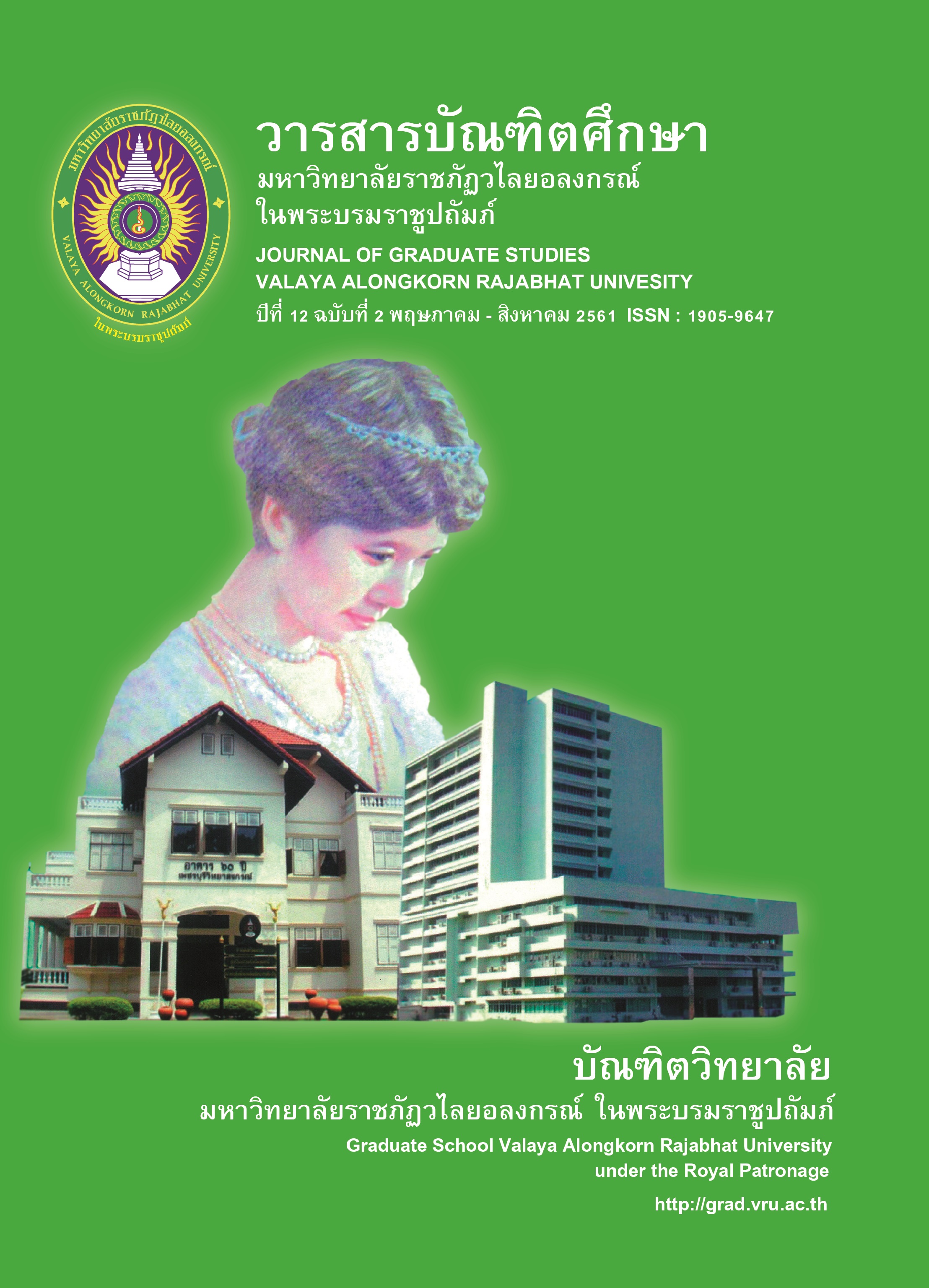A DEVELOPMENT OF TRAINING PACKAGE OF PROJECT PLANNING ON ZOPP USING PARTICIPATORY ACTION METHODOLOGY
Main Article Content
Abstract
The purposes of this research were as follows, 1) to synthesize the model for training package of the project planning on the ZOPP Model using participatory action methodology, 2) to develop the training package of the project planning on the ZOPP Model using participatory action methodology, and 3) to evaluate the project planning on the ZOPP Model using participatory action methodology on Stake Evaluation Model. The research methodology consisted of 4 phases as follows: Phase I Synthesize the model, Phase II Develop the training package using the synthesized model, Phase III Implement the developed training package, and Phase IV Fellowships. The sample for this research were 20 persons in Higher Education Institutions, using purposive sampling. The tools was Training Package of Project Planing on ZOPP, and evaluation forms. The research results revealed as follows, 1) The synthesized model consisted of 2 modules as : Module I Project planning on ZOPP Module that compounded of 2 sub-module as, 1.1 ZOPP Module for project planning on ZOPP, and 1.2 Participatory Module for group participation. Module II Robert E. Stake Evaluation Module. The results of the appropriateness of the model by experts revealed that they were in excellent level, 2) the developed training package consisted of 2 parts as follows: Part I the training Package Manuals, and Part II the Training Package consisted of 5 topics. The results of the appropriateness of training package by experts revealed that they were in excellent level, and 3) The project evaluation results revealed that in 3 parts as follows : Part I Antecedents, the results of the appropriateness of training package manual by experts revealed that they were in excellent level, Part II Transactions, the results of average scores from the formative evaluation was 81.06% that higher than the criterion on 80%, and Part III Outcomes, the results of average scores from the summative evaluation was 84.25% that higher than the criterion on 80%, and the results of the developed project from the trainer was in pass level at all. This research can be concluded it can be use the developed training package for target group properly.
Article Details

This work is licensed under a Creative Commons Attribution-NonCommercial-NoDerivatives 4.0 International License.
บทความทุกเรื่องได้รับการตรวจความถูกต้องทางวิชาการโดยผู้ทรงคุณวุฒิ ทรรศนะและข้อคิดเห็นในบทความ Journal of Global of Perspectives in Humanities and Social Sciences (J-GPHSS) มิใช่เป็นทรรศนะและความคิดของผู้จัดทำจึงมิใช่ความรับผิดชอบของบัณฑิตวิทยาลัย มหาวิทยาลัยราชภัฏวไลยอลงกรณ์ ในพระบรมราชูปถัมภ์ กองบรรณาธิการไม่สงวนสิทธิ์การคัดลอก แต่ให้อ้างอิงแหล่งที่มา
References
จิตณรงค์ เอี่ยมสำอางค์. [ออนไลน์] (2558). Active Learning : แนวทางในการจัดการเรียนรู้สำหรับผู้เรียนในยุคศตวรรษที่ 21. สืบค้นจาก www.cte.cornell.edu.
บุญชม ศรีสะอาด. (2545). การวิจัยเบื้องต้น. พิมพ์ครั้งที่ 7. ฉบับปรับปรุง. กรุงเทพ ฯ : สุวิริยาสาส์น.
ภาสกร นันทพานิช. [วารสารออนไลน์] (2555). “ผลของการเรียนรู้แบบมีส่วนร่วมต่อการปฏิบัติการทำเกษตรอินทรีย์ ของเกษตรกรในจังหวัดศรีสะเกษ.” แก่นเกษตร. 40 : 207-216.
มยุรี อนุมานราชธน. (2546). การบริหารโครงการ. เชียงใหม่: มหาวิทยาลัยเชียงใหม่.
วันชัย วัฒนศัพท์. [ออนไลน์] (2546). การมีส่วนร่วมกับการพัฒนาองค์กร. สืบค้นจาก www.med.md.kku.ac.th.
สบสันติ์ อุตกฤษฎ์. (2556). เทคนิคการวิจัยด้วยวิธี ZOPP. (เอกสารประกอบการแลกเปลี่ยนเรียนรู้การจัดการความรู้). กรุงเทพ ฯ : คณะครุศาสตร์อุตสาหกรรม มหาวิทยาลัยเทคโนโลยีพระจอมเกล้าพระนครเหนือ.
อนันต์ เกตุวงศ์. (2539). หลักและเทคนิคการวางแผน. กรุงเทพฯ: โรงพิมพ์มหาวิทยาลัยธรรมศาสตร์.
Cohen, J. M. and Uphoff, N. (1986). Rural development participation: Concepts and measures for project design, implementation and evaluation. Ithaca, New York: Cornell University.
David, K. and Newstrom, W. (1989). Human Behavior at Work. 8th ed. New York: Mcgraw-Hill.
Heerkens, Gary. (2002). Project Management. New York: McGraw-Hill Professional Publishing.


